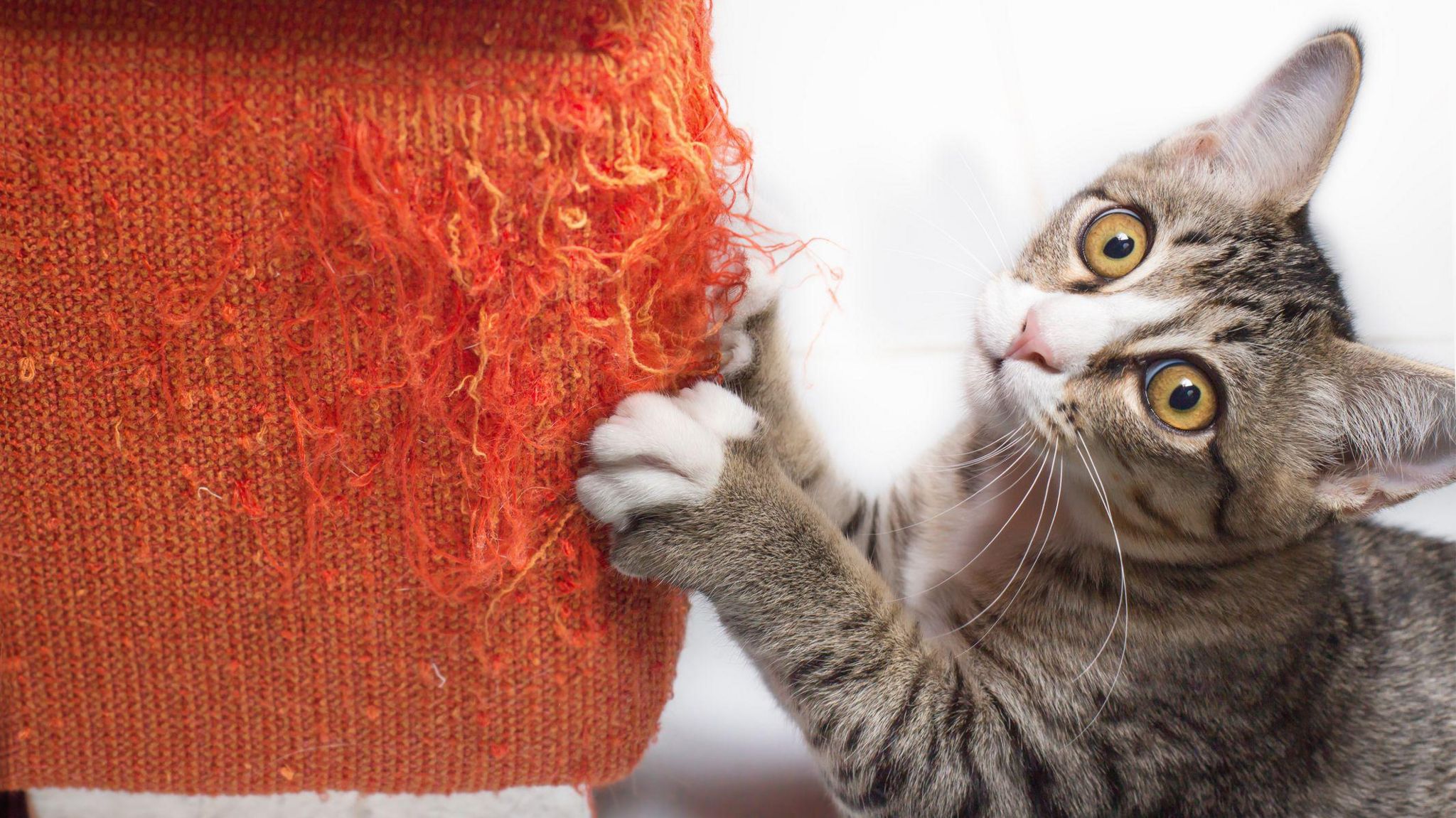New study suggests how we can stop cats scratching furniture

Lots of cats love to scratch furniture
- Published
Cats are adored by lots of people around the world, and while the animals can make ideal pets, there's one problem that many owners encounter time and time again - scratched furniture!
The felines are known for using their sharp claws on carpets, sofas and even cushions.
Despite scratching being a normal part of cats' behaviour, it can also leave unwanted damage in people's homes.
But, a new study may have the answer to this age-old problem.
More cat stories
- Published10 June
- Published15 December 2023
- Published31 October 2023
What were the findings from the study?
Giving cats places to hide can be a big stress reliever
An international team of researchers has investigated which factors influence scratching behaviour in domestic cats.
For the study, the experts asked more than 1,200 cat owners in France about their pets' daily lives and characteristics, as well as their undesired scratching habits.
The researchers then used the data to identify several different factors that may be linked to unwanted scratching from cats.
They found the presence of children in the home, personality traits of certain cats like aggression, and their activity levels all had a big impact on how much scratching they did.
"We see a clear link between certain environmental and behavioural factors and increased scratching behaviour in cats," said Dr Salgirli Demirbas, who is a veterinary researcher at Ankara University in Turkey and first author of the new study.
"Specifically, the presence of children in the home as well as high levels of play and nocturnal activity significantly contribute to increased scratching. Cats described as aggressive or disruptive also exhibited higher levels of scratching."
Playing with cats for short periods can help to reduce their stress
The researchers said stress was a key reason for unwanted scratching.
The presence of small children, for example, might increase stress and be one of several causes that can make the animals stress-scratch.
However, the link between scratching and children in the home isn't something researchers fully understand yet, and they say more research is needed.
Playfulness is another factor that could be linked to cats' stress. When cats play for a long time, their stress levels can rise because of the constant stimulation.
The authors of the new study suggest shorter play sessions which mimic successful hunting scenarios could be the key to success.
These play sessions are more likely to sustain cats' interest and reduce stress, that ultimately limits excessive scratching on furniture.
What can be done to stop cats scratching?
Scratching posts placed near cats' preferred resting spots could limit unwanted damage to furniture
The researchers concluded that while there are some circumstances that can't be altered when it comes to cats scratching - for example, a feline's personality or children being in the home - there are other factors that can be changed.
One that could help is placing scratch posts in areas where the cat frequently passes or near their preferred resting spot.
Also, providing cats with safe hiding places, higher spots to observe their surroundings and lots of opportunities to play for short periods could help combat their stress levels, and ultimately limit how much furniture they scratch.
“Understanding the underlying emotional motivations of scratching behaviour, such as frustration, which seem to be linked to personality traits and environmental factors, allows caregivers to address these issues directly,” said Dr Salgirli.
The experts who carried out the study say they aim to do further research to develop more effective strategies to manage cats' behaviour, and most importantly, strengthen the bond between cats and their caregivers.
More of the latest
- Published2 July
